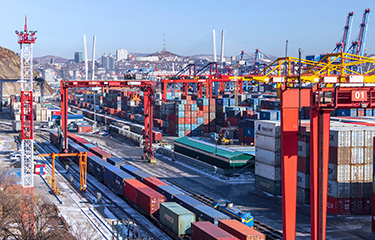Russia has banned imports of Japanese seafood, following China’s lead in the wake of the controversial release of treated wastewater from the damaged Fukushima Daiichi Nuclear Power Station.
“As a precautionary measure, the Rosselkhoznadzor joins China's temporary restrictive measures against imports of fish and seafood from Japan from October 16, 2023,” Russia's Federal Service for Veterinary and Phytosanitary Supervision (Rosselkhoznadzor) announced on 16 October. “Restrictions are introduced until comprehensive information is provided to confirm the safety of aquatic products and compliance with the requirements of the Eurasian Economic Union, as well as its analysis by Rosselkhoznadzor specialists.”
Russia’s stated complaint and reasoning for the ban is a lack of transparency.
“We, unfortunately, do not see any transparency, that is, openness, in Tokyo's actions, this is what we called for," Ministry of Foreign Affairs Spokesperson Maria Zakharova said on 13 September. She also criticized Japan’s “advertising tricks” in which government officials and foreign dignitaries publicly ate fish from Fukushima Prefecture.
Following the announcement of the ban, two officials of Japan’s Ministry of Foreign Affairs protested the decision. Katsuro Kitagawa, Director-General of the Disarmament, Non-Proliferation and Science Department; and Tsuyoshi Kitagawa, Director of the Japan-Russia Economic Affairs Division; protested to Russian officials Gennadii Ovechko, Charge d'Affaires ad interim and Sergey Eliseev, Counsellor.
The protest said that Japan had responded in good faith to Russia’s sudden request for a dialogue on 10 October, and had provided requested information by a 16 October deadline unilaterally set by Russia.
"The decision by the Russian side is extremely regrettable, and we strongly request that it be ...
Photo courtesy of Urri








